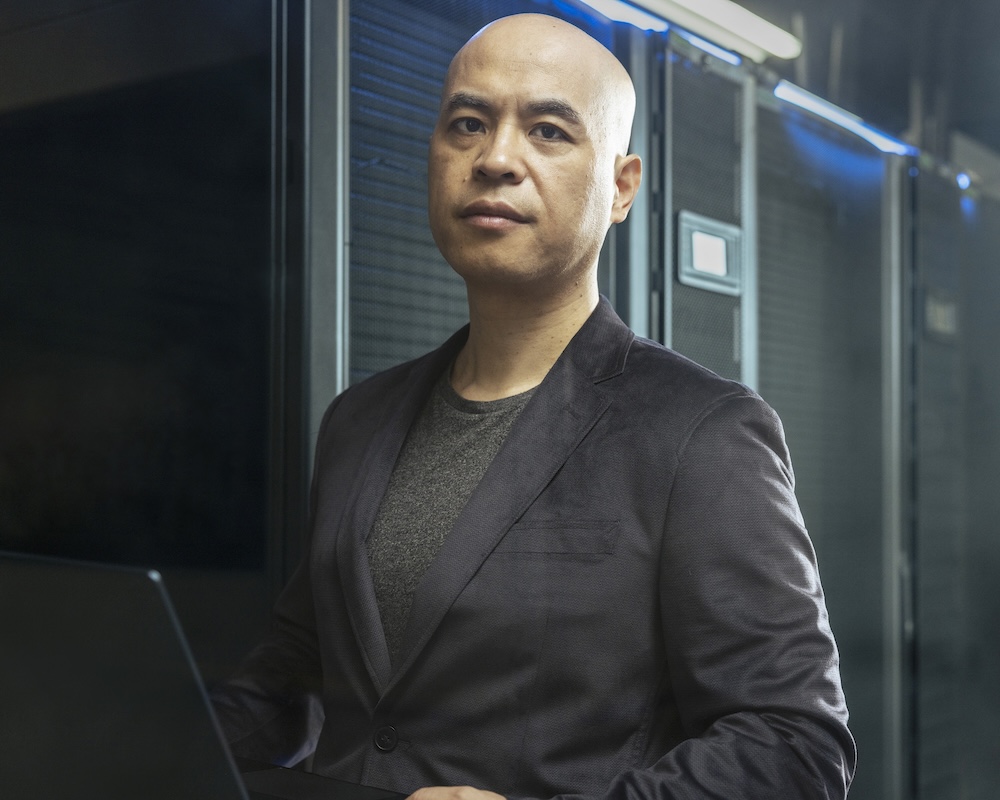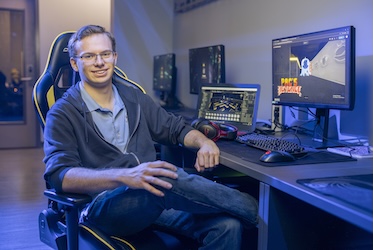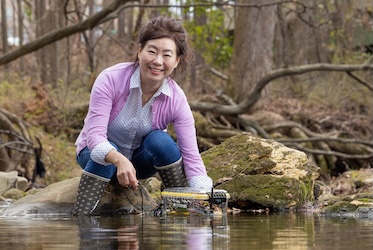
Kennesaw State researcher receives NSF grant to enhance quantum machine learning education
KENNESAW, Ga. | Oct 7, 2024

Shi, along with colleagues Dan Lo, professor of computer science, and Luisa Nino, assistant professor of industrial and systems engineering, recently secured a National Science Foundation (NSF) grant to develop open-source, hands-on QML training materials to address the shortage of researchers and their limited presence in higher education.
Quantum machine learning is a discipline that combines the advanced abilities of quantum computers with techniques that help machines learn from large data sources. Unlike regular computers that handle information step-by-step, quantum computers use the principles of quantum mechanics to look at large amounts of data all at once. This allows them to find patterns that traditional computers might miss.
In collaboration with Florida A&M University, Kennesaw State will create nine training modules with hands-on labs covering key quantum computing concepts and their applications in computer science and industrial engineering. These modules will be integrated into existing courses, accompanied by faculty workshops and student training camps, ultimately enhancing research and creating diverse communities in QML.
“This initiative is not just about teaching QML; it’s about building a supportive ecosystem that empowers both students and faculty to innovate and collaborate,” said Shi, who teaches in KSU’s College of Computing and Software Engineering.
Shi's journey into studying QML began during his time as a Ph.D. student when he recognized gaps between traditional data analysis methods and the increasing volumes of data generated daily. His passion stems from a desire to equip students and faculty across various fields, particularly computer science and industrial engineering, with cutting edge tools that can significantly improve decision-making and research outcomes.
One of the critical challenges facing the QML landscape is the shortage of skilled researchers. Shi noted that many universities are not yet prepared to teach QML effectively.
“Our goal is to develop a cloud-based lab environment where students can learn and apply QML techniques without needing extensive installations or prior experience,” Shi said.
Through this initiative, KSU aims to create a portable system that allows universities to integrate QML modules into their existing courses. By providing flexible resources, the project aims to make it easier for schools to adopt QML training that fits their specific needs.
The training materials Shi is developing will offer several unique features. The lab environment will be entirely browser based, allowing users to access resources without needing to install software. Moreover, the modules are designed to be interdisciplinary, promoting collaboration between students in computer science and industrial engineering.
Part of Shi's vision includes fostering a diverse and inclusive research community. Collaborating with institutions like Florida A&M University is a cornerstone of this initiative.
As the project progresses, Shi and his research team are focused on evaluating the effectiveness of their modules. They will implement surveys before and after courses to gather feedback, which will help refine their approach and ensure that students gain valuable insights into QML.
Looking ahead, Shi is optimistic about the potential of QML to transform research practices across various scientific fields.
Sumanth Yenduri, dean of the College of Computing and Software Engineering, credits Shi for his research and hard work.
“Shi’s research not only advances the field of quantum machine learning but also sets a new standard for interdisciplinary collaboration and innovation in education,” Yenduri said.
– Story by Raynard Churchwell
Photos by Darnell Wilburn
Related Stories

Kennesaw State student develops AI tools to help first responders diagnose behavioral health issues

Kennesaw State computer game design student launches studio, first video game

Kennesaw State student integrates artificial intelligence into architectural design education

KSU researcher designing AI system to transform water safety
A leader in innovative teaching and learning, Kennesaw State University offers undergraduate, graduate, and doctoral degrees to its more than 47,000 students. Kennesaw State is a member of the University System of Georgia with 11 academic colleges. The university’s vibrant campus culture, diverse population, strong global ties, and entrepreneurial spirit draw students from throughout the country and the world. Kennesaw State is a Carnegie-designated doctoral research institution (R2), placing it among an elite group of only 8 percent of U.S. colleges and universities with an R1 or R2 status. For more information, visit kennesaw.edu.














